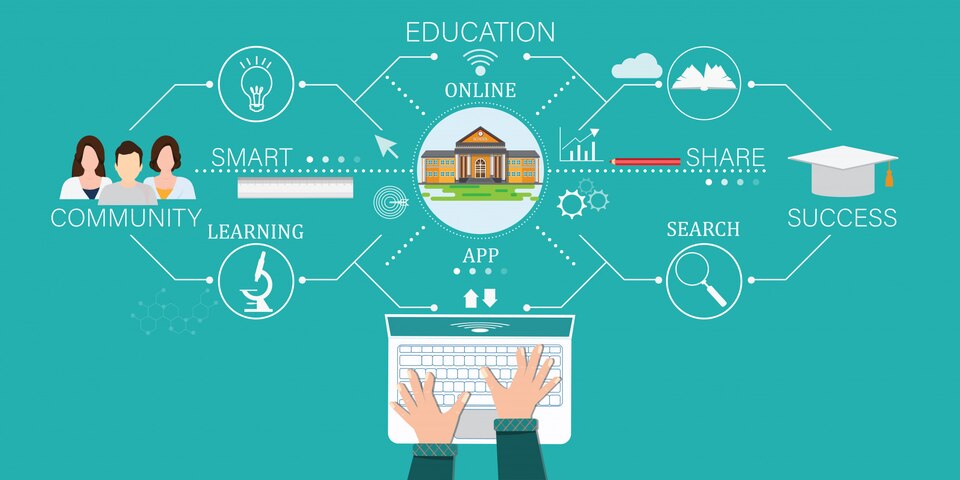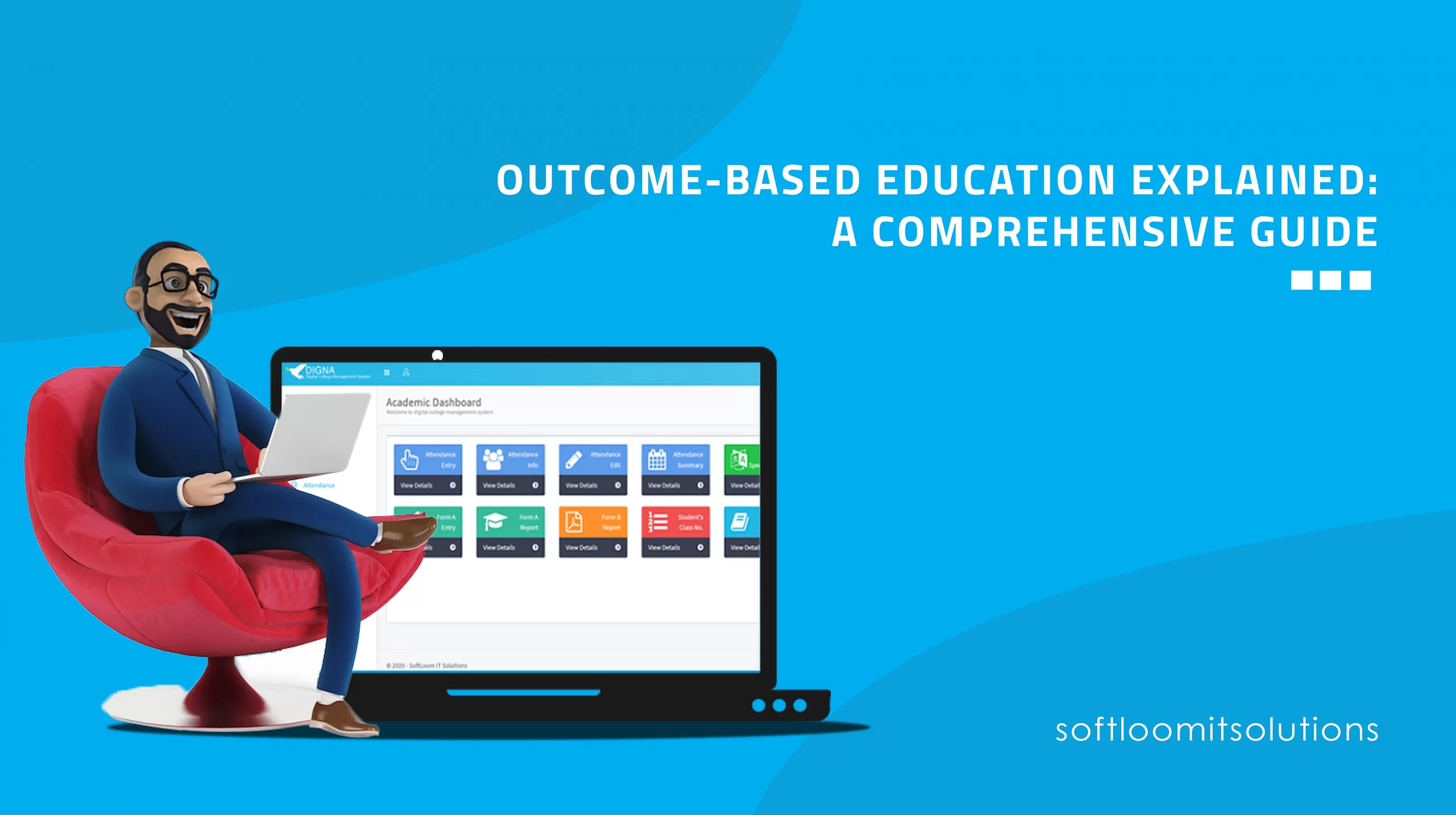With the rapid advancement of technology, the demand for highly skilled graduates who can effectively adapt and communicate has increased significantly. However, traditional classroom teaching methods can be challenging in equipping students with the necessary skills, such as problem-solving and technology proficiency. Therefore, it is essential to have an education system that effectively meets these demands.
Enter Outcome-Based Education, an innovative methodology that strongly emphasises the desired outcomes of a course. In this approach, every aspect of education is tailored towards producing well-equipped graduates with the necessary skills and knowledge.
What is Outcome-Based Education?
Outcome-Based Education (OBE) prioritises developing well-rounded, professionally, and socially competent students. This personalised learning model allows institutions to create their own unique OBE framework to help students achieve their goals and succeed in their chosen professions after graduation. Furthermore, OBE can drive regular improvements in the quality of education.

In OBE, students enrol in courses with a specific objective, such as skill-building or acquiring knowledge. The goal must be met by the end of each class, with no strict method or time constraints. Students can understand at their own pace and are supported by faculty members, moderators, and instructors who guide them toward achieving the set outcomes.
The Benefits of Implementing Outcome-Based Education in Your Institution
The quality of higher education has been a topic of great interest in recent years, with colleges and universities exploring new programs to help students improve their performance, professional growth, and overall skills and knowledge. Experts have concluded that high-quality education results in better learning outcomes.
These three elements are what ultimately represent the quality of higher education.

Here’s how your institution can benefit from a good OBE framework:
- Personalised Learning Experience: Outcome-Based Education offers a customised approach to learning tailored to each student’s individual needs and preferences. This ensures that students can learn at their own pace and receive the necessary support to achieve their desired outcomes.
- Improved Student Outcomes: OBE ensures students are equipped with the necessary skills and knowledge to succeed in their chosen profession by focusing on desired outcomes. This leads to improved academic performance, increased employability, and better career prospects.
- Enhanced Faculty Engagement: With OBE, faculty members have a clearer understanding of the desired outcomes and their role in achieving them. This leads to increased engagement and motivation among faculty, resulting in better quality education for students.
- Increased Institutional Reputation: By adopting an OBE framework, your institution will be seen as being at the forefront of educational innovation and quality. This can lead to increased demand for your programs, higher enrollment, and a better reputation for your institution.
- Regular Quality Improvement: OBE provides a continuous improvement process, with periodic evaluations and assessments to ensure that students achieve the desired outcomes. This helps to drive steady quality improvements, which benefits both students and the institution.
Measures to Improve the Quality of Education with OBE
Program Educational Objectives (PEO):
Establishing PEO provides a clear understanding of what a program aims to achieve and helps to align all aspects of education, including teaching methods and assessment tools, towards the desired outcomes.
Graduate Attributes (GA):
Identifying the desired qualities, skills, and attributes that graduates should possess helps to ensure that the education provided is of the highest quality and relevant to the needs of the students and industry.
Student Learning Outcomes (SLO):
Clearly defining SLOs helps ensure students have the necessary knowledge and skills to achieve their desired outcomes.
Program Outcomes (PO):
Establishing a PO helps to align all aspects of education with the program goals, ensuring that students receive a comprehensive education that prepares them for their chosen profession.
Course Outcomes (CO):
It is essential to clearly define CO so that each course aligns with the desired outcomes and provides students with the necessary knowledge and expertise to succeed.
Syllabus, Unit & Lesson Plan Outcomes:
Education is more focused and targeted if each syllabus, unit, and lesson has clear outcomes.
Teaching Methods:
The choice of appropriate teaching methods that align with the desired outcomes helps to ensure that students are provided with a high-quality education and equipped with the necessary skills and knowledge.
Assessment & Evaluation Tools:
Using appropriate assessment and evaluation tools helps to ensure that students receive meaningful feedback and can measure their progress toward their desired outcomes.
Customizable Rubrics & Marking Schemes:
Using customizable rubrics and marking schemes helps to ensure that assessments are consistent and that students receive meaningful feedback on their performance.
Outcome-based Education & Accreditation:
Aligning OBE with accreditation helps to ensure that education is of the highest quality and meets industry standards.
Student Success:
Focusing on student success helps to ensure that education is relevant, and meaningful and prepares students for their chosen profession.
Constructive Alignment:
Automated mind maps facilitate education and ensure the right outcomes.
Traditional Education VS Outcome-Based Education
Traditional education, also known as lecture-based or teacher-centred education, focuses on imparting information and knowledge to students through lectures and textbook learning. The assessment of students’ learning primarily revolves around memorisation and recall of information.
On the other hand, Outcome-Based Education (OBE) is a student-centred approach to learning where the focus is on what students can do with the knowledge and skills acquired.As with standard education, OBE focuses on determining the student’s ability to demonstrate the educational objectives and outcomes.
OBE emphasises essential developing skills such as critical thinking, problem-solving, communication, and collaboration. It is a flexible and adjustable approach that allows for personalised learning, catering to students’ needs and interests.
While traditional education focuses on the transmission of knowledge, OBE focuses on the application of knowledge and the development of essential skills.
Gain a deeper understanding of our Outcome-Based Education (OBE) module by connecting with our experts today. They are ready to assist you in comprehending the software thoroughly and guiding you through the implementation process.
For more information, contact us via phone or email.






